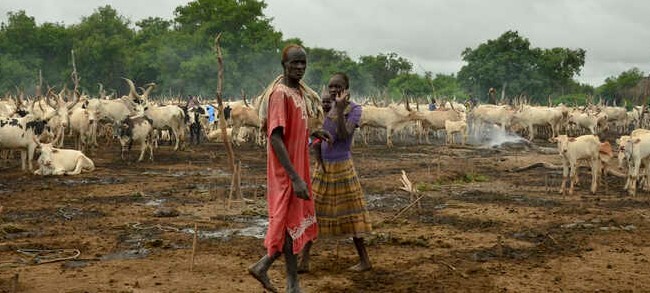Cattle keepers from Terekeka County who graze their animals in villages around Juba have started returning home as farmers in the area complain about cattle destroying their farms.
Clashes between the two groups have recently led to deadly violence.
Zachariah Laku, the Secretary-General of the now-defunct Terekeka State, told Radio Tamazuj on Friday that some cattle keepers have already arrived in Terekeka with more than 100, 000 animals and that more cattle are on their way back home.
The official pointed out that the relocation of cattle from villages around the capital Juba to their places of origin in Terekeka was a measure to defuse tension between farmers and cattle keepers over accusation of crops destruction by cows.
“As usual, these cattle keepers move seasonally. But this time, there were clashes among themselves and with farmers in the villages surrounding the capital city, Juba. And that is why it was resolved that they had to be relocated,” Zachariah Laku said.
He added, “As we speak, the repatriation exercise is still ongoing. In the first group, we relocated over 34 000 cows, 50, 000 cows in the second phase and about 80 cows in the last group. More than 200, 000 cows are still on the way.”
For his part, Terekeka Police Commissioner Abednego Akol Ayuen said preparations are ongoing to relocate the remaining cattle keepers and their cattle.
“We are left with five cattle camps. Their relocation is challenging because they are scattered over areas like Mundri road, Abyei road, Kauda, and Jebel Luri. But arrangements are already in place, and very soon we will complete our mission,” he said.
Khamis John Konga, the Director-General for Animal Resources and Fisheries in Terekeka County, said they have started receiving the animals over the last two weeks, but cattle keepers who come from areas along the River Nile are unable to resettle due to floods.
The livestock official urged aid agencies to vaccinate the animals as they resettle, citing the risk of a possible disease outbreak in the area.
Keeping livestock alive and healthy is vital in South Sudan, where most of the population depends heavily on cattle for livelihood.




